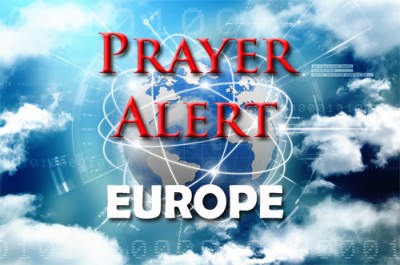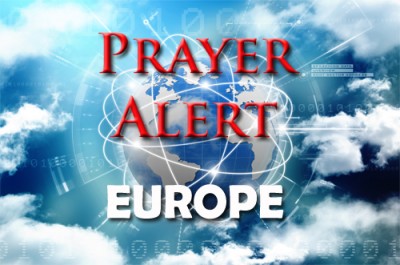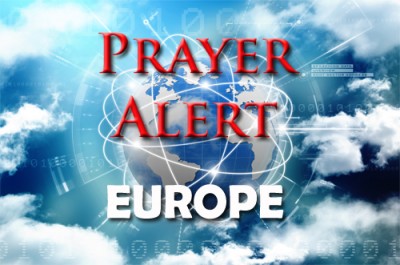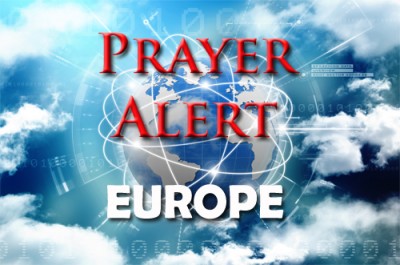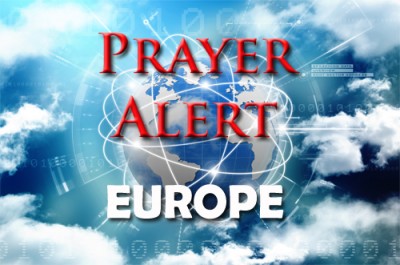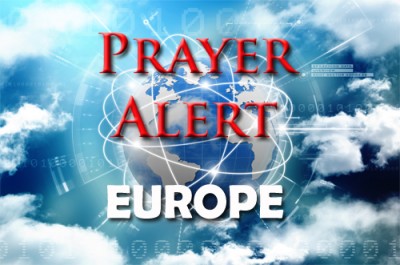We don't take rights of Christians seriously enough, says Council of Europe
Following multiple stories of religious discrimination, the Parliamentary Assembly of the Council of Europe has voted overwhelmingly in favour of a report into injustice against Christians. Moldovan Christian MP Valeriu Ghiletchi, of the Equality and Non-Discrimination Committee, submitted the report, entitled 'Tackling intolerance and discrimination in Europe with a special focus on Christianity'. The report uses case studies from across Europe, including the UK, to highlight the need to improve ‘the principle of reasonable accommodation’ and ensure that Christians in particular are not penalised for their beliefs. ‘Freedom of religion is a fundamental right and one of the foundations of a democratic and pluralist society,’ the report states. ‘Intolerance and discrimination on the grounds of religion or belief affect minority religious groups in Europe as well as people belonging to majority religious groups. However, acts of hostility, violence and vandalism targeting Christians and their places of worship are insufficiently taken into consideration and condemned.
‘Europe’s interests come first’, says new Greek government
There were smiles all round in Paris, France on Sunday (1 February) as Greece’s new Finance minister Yanis Varoufakis discussed a fresh debt deal with his French counterpart. Varoufakis is on a diplomatic offensive to persuade sceptical eurozone members to agree - by the end of May - on a plan that does not include Greece accepting further bailout money. Hosting the meeting, French Finance Minister Michel Sapin, said France was prepared to help Greece straighten out its finances and added: ‘We cannot rebuild a country without a fair tax system. We must fight against tax fraud and tax optimisation. We are waging a battle both in Europe and at an international level within the G20. But it is obviously something absolutely necessary for Greece, as well.’
‘Europe’s interests come first’, says new Greek government
There were smiles all round in Paris, France on Sunday (1 February) as Greece’s new Finance minister Yanis Varoufakis discussed a fresh debt deal with his French counterpart. Varoufakis is on a diplomatic offensive to persuade sceptical eurozone members to agree - by the end of May - on a plan that does not include Greece accepting further bailout money. Hosting the meeting, French Finance Minister Michel Sapin, said France was prepared to help Greece straighten out its finances and added: ‘We cannot rebuild a country without a fair tax system. We must fight against tax fraud and tax optimisation. We are waging a battle both in Europe and at an international level within the G20. But it is obviously something absolutely necessary for Greece, as well.’
Ukraine: Rebel attacks on city of Mariupol condemned by the UN
Russia's end goal remains the same: to seize more territory and move the line of Russian-controlled territory deeper and deeper into Ukraine. The US and Russia remain as far apart as ever over who is to blame for the current escalation in fighting in eastern Ukraine. The weekend’s deadly rocket attacks on the government-held port city of Mariupol on Saturday have been described by the UN at an extraordinary meeting of the Security Council as a ceasefire violation and a war crime. US Ambassador to the UN, Samantha Power, didn’t mince her words when she described the restarting of the rebel offensive in eastern Ukraine as being ‘Moscow-made’: She said: unfortunately we are back here today because Russia and the separatists have once again flouted these commitments. The targets are fresh ones, but Russia’s end goal remains the same: to seize more territory and move the line of Russian-controlled territory deeper and deeper into Ukraine.’
Greece: Markets hit by debt default fears
Greek financial markets were in turmoil on Wednesday with investors fearing the new anti-bailout government was determined to defy its international creditors. Greek five-year bond yields jumped to a record high of 13%, reflecting fears that investors may not get their money back. Share prices also fell for a third consecutive day, with the main Athens Stock Exchange (ASE), down 7.6%. The biggest losers were bank shares. In the two sessions since Sunday's election, banks have seen 23% of their value wiped off, with investors fretting that the possibility of Greece leaving the euro would see bank accounts converted back into a new Greek national currency. The sharp movements came after new Greek Prime Minister Alexis Tsipras said in his first cabinet meeting that he planned to negotiate with creditors over the €240bn (£179bn; $270bn) bailout. The EU has repeatedly warned the new government to stick to its commitments. A default could force Greece out of the euro.
EU pledges better cooperation with Muslim countries in the fight against terror
‘The threat is not only the one we faced in Paris, but also spreading in many parts of the world, starting in Muslim countries. We need to share information more. We need to cooperate more. We are determined to do what is necessary to keep Europe safe from the terrorist threat,’ said British Foreign Secretary Philip Hammond on Monday (January 19). He was among 28 EU foreign ministers attending a meeting in Brussels. There, delegates pledged to adopt better strategies at home and abroad in an effort to counter radicalised Muslims returning from Syria and Iraq. EU Foreign Policy Chief Federica Mogherini called for better collaboration between EU member states, but also with Muslim countries. ‘We took a decision with the Foreign Affairs Council to coordinate in a much more active way than has been the case so far.’

